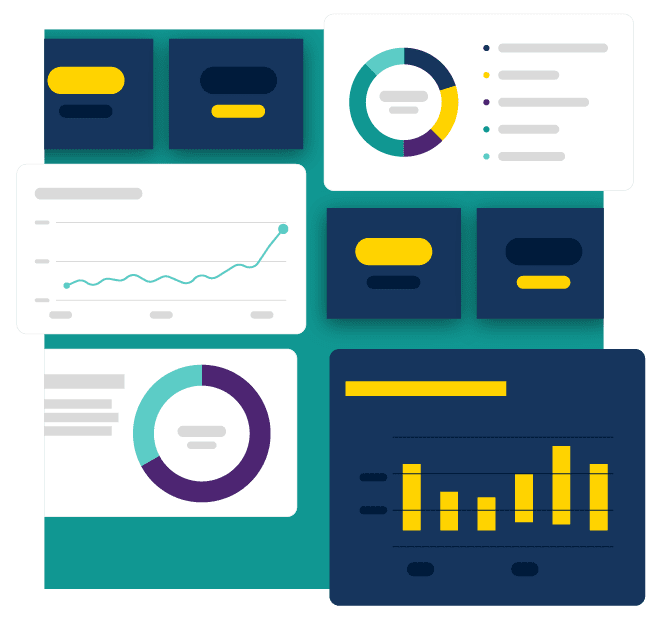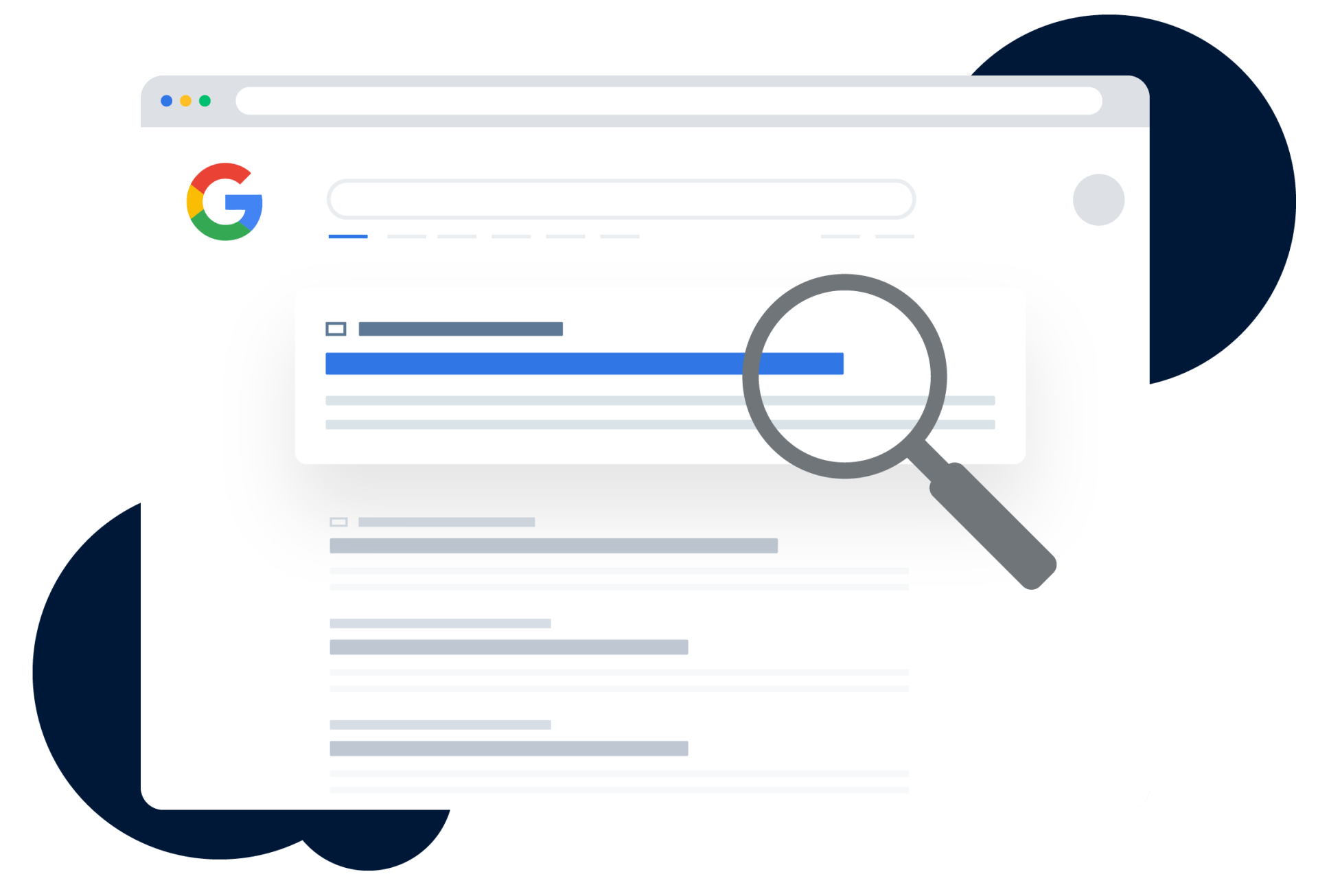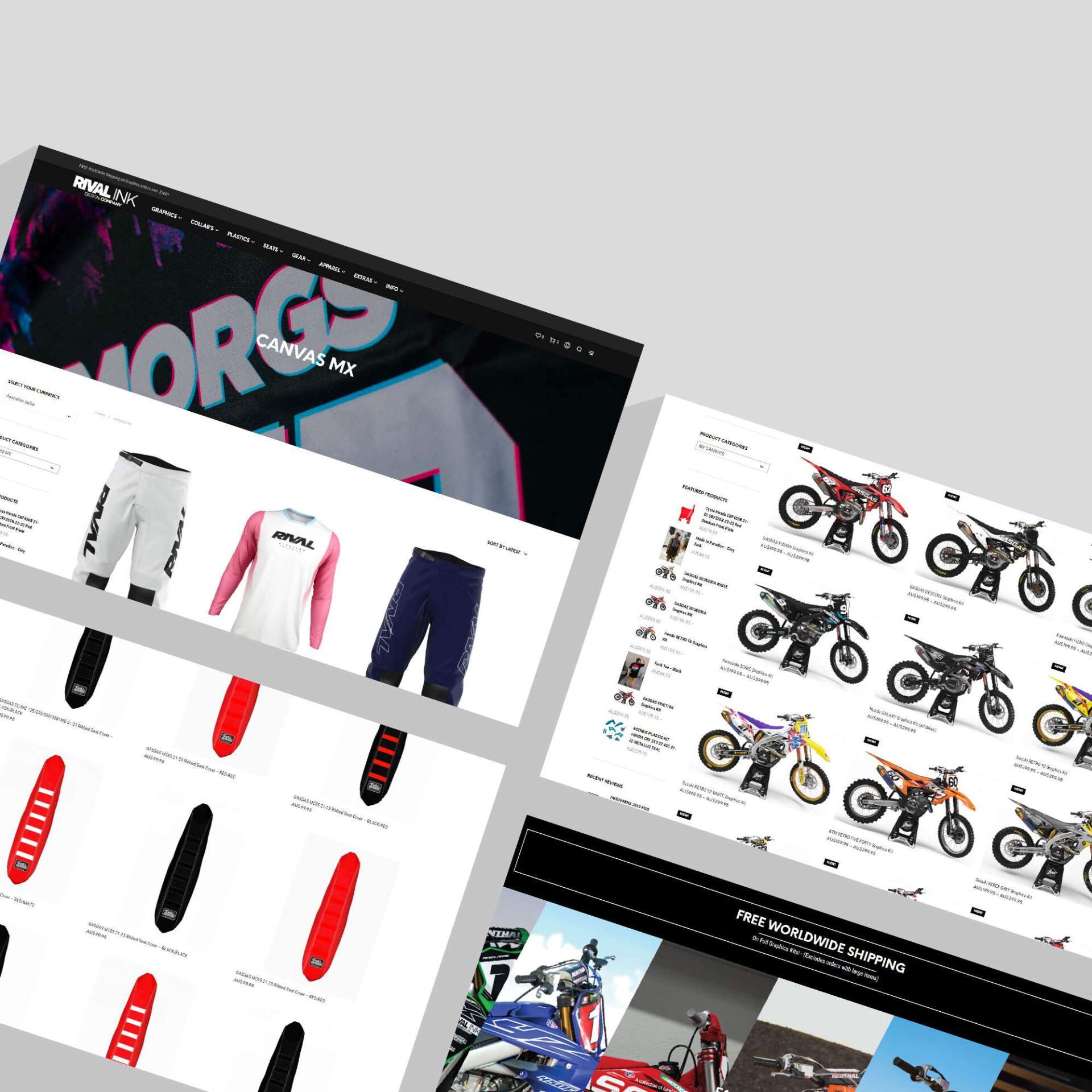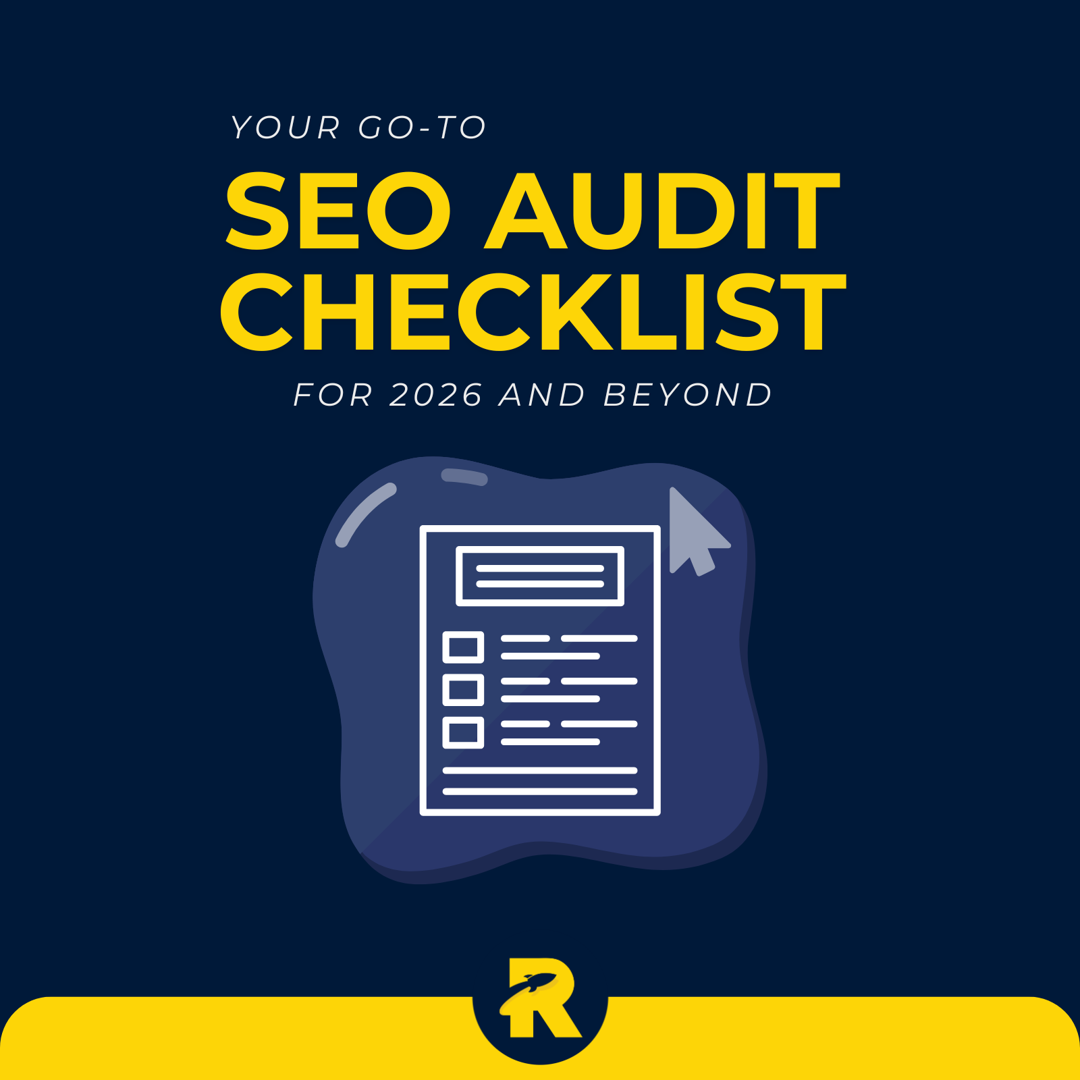Master Google Ads Optimisation with RankingCo – Start Getting Better Results Today
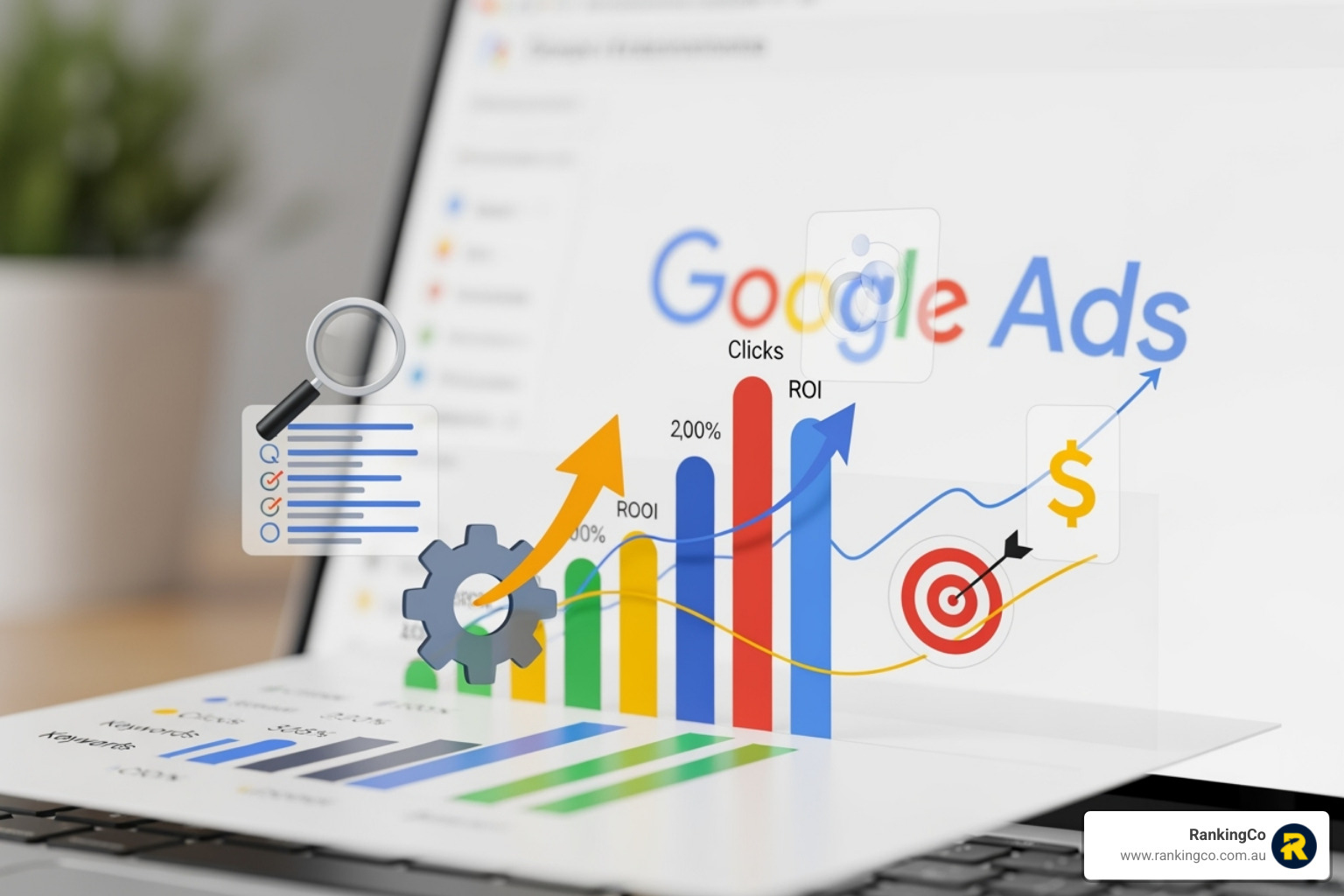
Why Effective Google Ads Optimisation Can Transform Your Business

Google Ads optimisation is the systematic process of improving your paid advertising campaigns to maximise return on investment and reduce wasted spend. Effective optimisation involves refining core areas like account structure, keyword strategy, bidding, ad creative, audience targeting, and performance analysis.
Proper optimisation is critical. Research shows that small businesses often waste 25% or more of their paid search spend. Conversely, businesses that increase their account optimisation score by just 10 points see a median 14% increase in conversions. This guide will walk you through the essential elements of Google Ads optimisation, from foundational setup to advanced techniques.
I'm Kerry Anderson, co-founder of RankingCo. Over 15 years, I've helped businesses scale from $1 million to over $200 million in revenue through strategic Google Ads optimisation . This guide distils the proven methodologies we've used to help clients across Australia, New Zealand, the US, and Canada achieve sustainable growth.
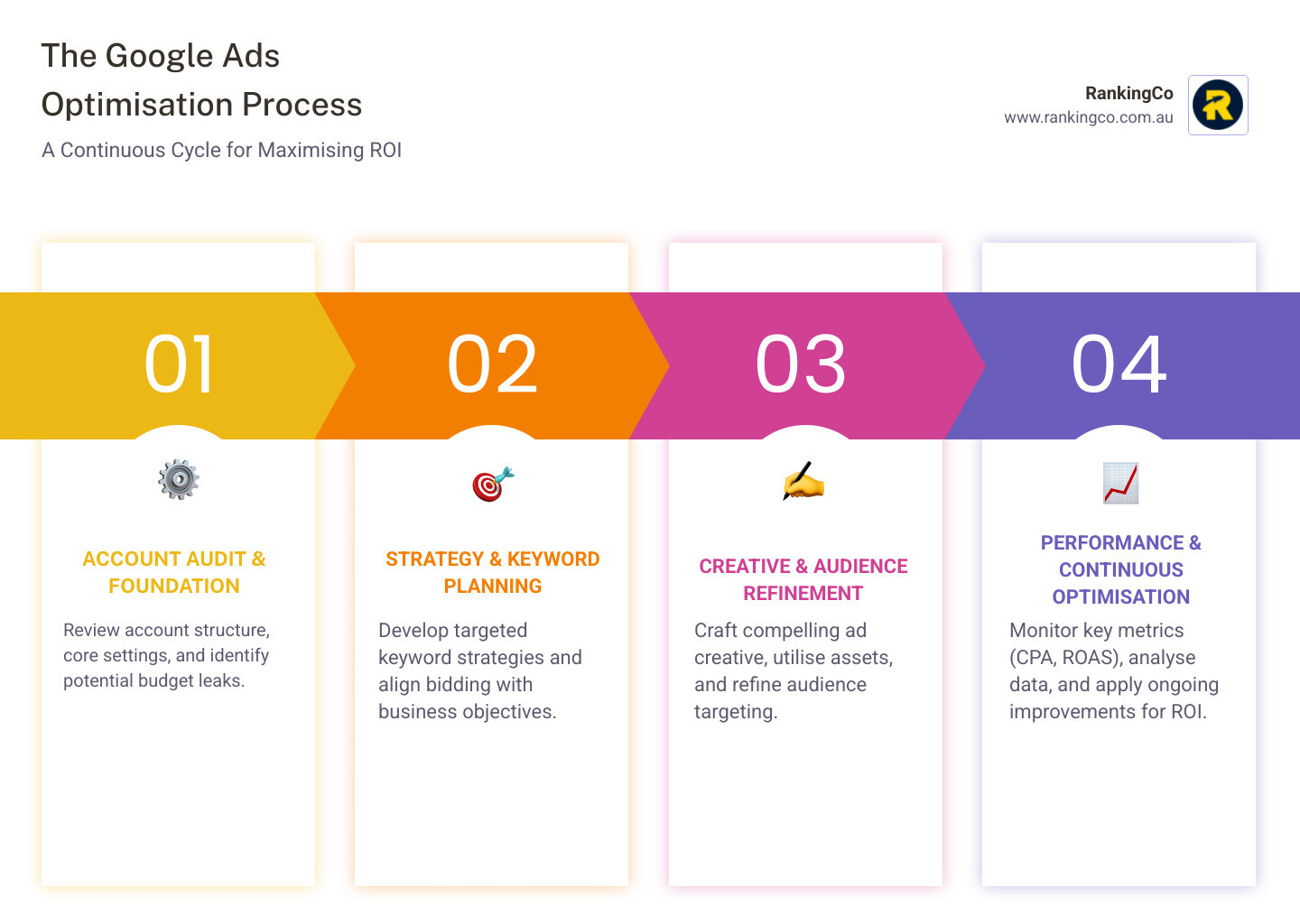
The Foundation: Account Structure and Core Settings
Effective Google Ads optimisation begins with a robust account structure and correctly configured settings. This groundwork prevents the typical 25% of paid search spend wasted by many businesses and ensures every dollar works efficiently.
Setting Up for Success: Goals and Conversion Tracking
Before launching any campaign, we define clear business objectives, such as leads or online sales. These goals inform every decision. Precise conversion tracking is non-negotiable for measuring success and training Google's algorithms. This involves installing tracking code and defining valuable actions, from macro-conversions like a purchase to micro-conversions like a newsletter signup. Accurate data is essential for automated bidding strategies to perform optimally. For more details, see our guide on What is Conversion Tracking?.
Structuring Your Campaigns for Granular Control
A logical account structure (Account > Campaigns > Ad Groups > Keywords/Ads) is vital for control. Campaigns align with product categories or locations, controlling budget and high-level settings. Ad groups contain tightly themed keywords and ads to ensure high relevance. While Single Keyword Ad Groups (SKAGs) were once popular, Single Theme Ad Groups (STAGs) are now often more effective, allowing Google's AI to better match queries to ads. We leverage various campaign types, including Search, Display, Shopping, and Performance Max, depending on your objectives. Avoiding common structural mistakes is key to preventing budget waste, a topic we cover in 7 Deadly Google Ads Sins That Are Making You Broke.
Essential Campaign Settings to Check
Careful configuration of campaign settings prevents significant wasted spend. We focus on:
- Location Targeting: We set targeting to "People in or regularly in your targeted locations" to avoid clicks from outside your service area.
- Network Settings: For new campaigns, we often start with only the Google Search Network, cautiously testing Search Partners later to maintain performance quality.
- Ad Scheduling (Dayparting): This ensures your budget is spent during peak conversion times, such as business hours for a B2B company.
- Device Targeting: We analyse performance by device and adjust bids accordingly, as user behaviour varies significantly between mobile and desktop.
Mastering Keywords and Bidding for Maximum Impact
The core of Google Ads optimisation is the link between keywords and bidding. A precise strategy connects your business to customers with purchase intent, delivering exceptional ROI and avoiding the common 25% budget waste from a "spray and pray" approach.
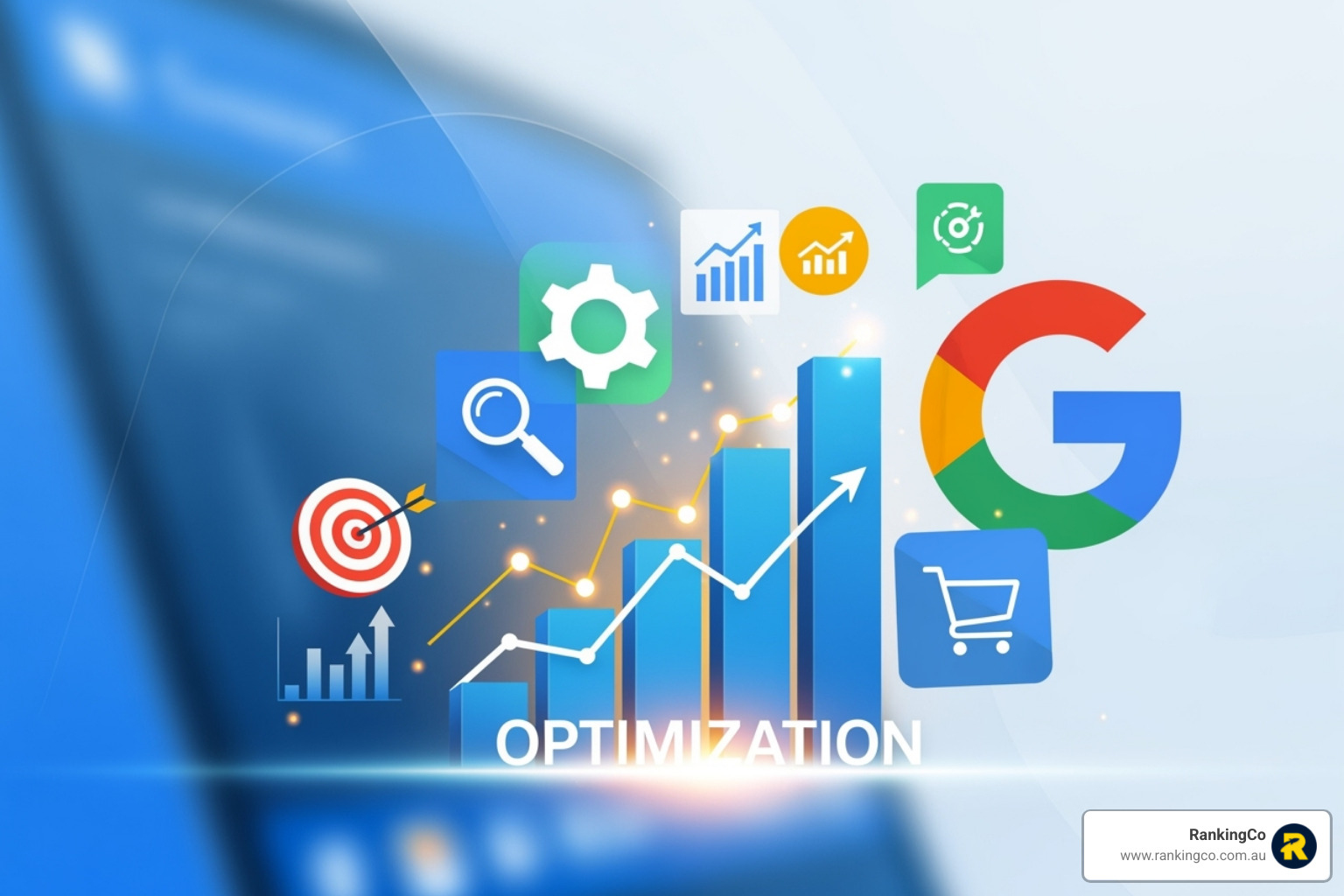
Strategic Keyword Selection and Targeting
An effective keyword strategy aligns with real customer search behaviour and intent. Keyword match types are foundational. Broad match has become more sophisticated but requires careful management with negative keywords. Phrase match offers a balance of reach and relevance, while Exact match provides the tightest control. We prioritise long-tail keywords —specific phrases with lower competition but higher conversion rates. Understanding user intent (commercial, transactional, informational) is crucial for budget allocation. The Search Terms Report is an invaluable tool for finding new keywords and identifying waste. For more on this, see our guide on What is the Google Search Term Report?.
The Power of Exclusion: Effective Negative Keyword Management
Negative keywords are essential guardrails that prevent budget waste on irrelevant searches. By telling Google when not to show your ads, you improve Click-Through Rate (CTR), boost your Quality Score, and reduce cost-per-click. We implement negatives at the account, campaign, and ad group levels for comprehensive control. Regular audits of the Search Terms Report are vital to identify and exclude irrelevant query patterns. Learn more in our guide on How to Use Negative Keywords Effectively for Google Ads and PPC.
Choosing the Right Bidding Strategy
Your bidding strategy translates marketing goals into algorithmic instructions. While Manual CPC offers granular control, automated bidding strategies leverage machine learning for superior real-time optimisation. The key is aligning the strategy with your business objectives:
- Maximise Clicks: Best for driving traffic and awareness.
- Maximise Conversions: Ideal for lead generation where conversion values are similar.
- Target CPA (tCPA): Sets a target cost per acquisition for budget predictability.
- Target ROAS (tROAS): Essential for e-commerce to optimise for return on ad spend.
Success requires giving the algorithms enough data and time (typically 4-8 weeks) to learn. Frequent changes disrupt this process and hinder performance. For more, explore these bidding strategies.
Advanced Google Ads Optimisation Techniques
Once your foundation is solid, advanced Google Ads optimisation techniques can lift performance. These strategies refine audience targeting, maximise ad creative impact, and implement strategic bid adjustments to create a significant competitive advantage.
Enhancing Ads with Assets and Compelling Copy
Your ad is your digital storefront. Ad assets (formerly extensions) expand your ad's size and provide valuable information, dramatically increasing click-through rates. Key assets include:
- Sitelinks: Direct users to specific pages.
- Callouts: Highlight benefits like "Free Shipping."
- Structured Snippets: Showcase features in an organised format.
- Call Assets: Enable direct calls from the ad.
- Image Assets: Add visual appeal. Learn more in our guide on How Image Extensions Can Make Your Ads Shine.
Responsive Search Ads (RSAs) allow Google's AI to test and serve the most effective combination of headlines and descriptions. Continuous A/B testing of ad copy is non-negotiable for achieving optimal results, always including a strong call-to-action.
Refining Your Audience with Advanced Targeting
Moving beyond basic demographics allows you to reach users at the perfect moment. Remarketing Lists for Search Ads (RLSAs) target warm prospects who have already visited your site, typically yielding higher conversion rates. Other powerful options include in-market audiences (users actively researching products) and custom audiences (users defined by specific search behaviour or site visits). Layering these audiences with bid adjustments creates highly refined targeting that is fundamental to effective Google Ads Lead Generation.
Optimising for Time and Place with Bid Adjustments
Bid adjustments provide granular control over where and when your budget is spent. Geographical bid adjustments allow you to invest more in high-performing locations and exclude unprofitable ones. Ad scheduling lets you apply bid adjustments during peak conversion times, such as business hours for a B2B client. Device bid adjustments are crucial for optimising based on performance differences between desktop, mobile, and tablet. These advanced techniques, when managed carefully, create powerful competitive advantages, as detailed in our guide on Google Ads Tips and Tricks from the Pros.
Measuring Success: Metrics, Scores, and Continuous Improvement
Effective Google Ads optimisation is an ongoing cycle of analysis, refinement, and improvement. Sustained success depends on measuring the right things, interpreting Google's diagnostic tools, and making data-driven decisions.
Understanding Your Google Ads Optimisation Score
Google's Optimisation Score (0-100%) is a real-time estimate of how well your account is set up to perform. It provides recommendations to improve performance, and research shows that a 10-point increase in this score can lead to a median 14% increase in conversions. However, we treat these recommendations as suggestions, not mandates. We critically evaluate each one to ensure it aligns with your specific business goals, as Google's advice doesn't always understand your unique context. You can learn more about optimisation score from Google's documentation.
Optimisation Score vs. Quality Score: What's the Difference?
These two metrics serve different purposes. Optimisation Score is an account-level health check, while Quality Score is a keyword-level diagnostic tool.
| Feature | Optimisation Score | Quality Score |
|---|---|---|
| Scope | Account-level, campaign-level | Keyword-level |
| Purpose | Holistic account health check | Diagnostic tool for ad quality |
| Calculation Basis | Account settings, history, recommendations | Expected CTR, Ad Relevance, Landing Page Experience |
| Impact | Guides overall account improvements | Influences Ad Rank and CPC |
Quality Score directly impacts your ad position and cost-per-click, rewarding advertisers who provide a relevant and positive user experience. Improving its components—Expected CTR, Ad Relevance, and Landing Page Experience—is a core part of our strategy. Learn how in our guide: What is Quality Score? What You Can Do to Improve It.
Key Metrics to Prioritise for Effective Google Ads Optimisation
It's easy to get lost in vanity metrics like clicks and impressions, which don't reflect business growth. We focus on actionable metrics that directly impact your bottom line:
- Cost Per Acquisition (CPA): The cost to generate one lead or sale.
- Conversion Rate: The percentage of clicks that result in a desired action.
- Return On Ad Spend (ROAS): The revenue generated for every dollar spent on ads.
- Conversion Value: The monetary value assigned to different conversions.
By optimising for these metrics, we train Google's algorithms to find users most likely to become profitable customers. This focus on meaningful data is what separates effective campaigns from those that merely burn through a budget. For more on this, explore our guide on achieving explosive ROI with Google Ads.
Frequently Asked Questions about Google Ads Optimisation
As businesses start on their Google Ads optimisation journey, several key questions consistently emerge. Here are concise answers to the most common queries we encounter from our clients across Australia, New Zealand, the US, and Canada.
How often should you optimise your Google Ads campaigns?
Google Ads optimisation is a continuous process, not a one-time task. The frequency depends on account maturity and data volume. A typical cadence involves:
- Daily Checks: Monitoring for critical issues like ad disapprovals or budget pacing.
- Weekly Reviews: Analysing the Search Terms Report for new negative keywords and making tactical bid adjustments.
- Monthly & Quarterly Strategy: Evaluating overall performance, testing new creative, and ensuring campaigns remain aligned with long-term business goals. New accounts require more frequent attention, while mature accounts can allow automated systems more room to work within established parameters.
How can negative keywords improve Google Ads performance?
Negative keywords are a powerful tool for improving campaign efficiency. They act as filters to prevent your ads from showing on irrelevant searches, which directly addresses the common issue of wasted ad spend. The primary benefits include:
- Reduced Wasted Spend: Saving budget by avoiding irrelevant clicks.
- Improved Click-Through Rate (CTR): Showing ads to a more qualified audience increases engagement.
- Higher Quality Score: Better CTR and relevance signal quality to Google, potentially lowering your costs.
- Better Traffic Qualification: Attracting visitors with higher conversion intent.
What is the difference between Optimisation Score and Quality Score?
These two metrics are often confused but serve distinct functions in Google Ads optimisation .
- Optimisation Score is a holistic, account-level grade (0-100%) that assesses your account's overall health and potential for improvement. It provides actionable recommendations to improve performance.
- Quality Score is a diagnostic tool at the keyword level (1-10). It measures ad quality based on expected click-through rate, ad relevance, and landing page experience. It directly influences your ad rank and cost-per-click in each auction.
In short, Optimisation Score guides your overall strategy, while Quality Score is a critical factor in the performance of individual keywords.
Take Your Brand to New Heights with a Google Premier Partner
Effective Google Ads optimisation is a continuous journey requiring strategic expertise and a deep understanding of a changing digital landscape. The right partner can transform your campaigns from an expense into a powerful engine for growth.
As a Google Premier Partner, RankingCo has a proven track record of delivering exceptional results. This status reflects our commitment to helping businesses achieve their advertising goals through the highest standards of campaign management. We are the world's best little digital agency , combining global expertise with the personalised attention your business deserves.
Our approach integrates advanced AI technologies and full-funnel marketing strategies, ensuring your campaigns are not merely competitive but set new industry benchmarks. We have guided start-ups and scaling businesses across Australia, New Zealand, the US, and Canada, helping them steer regional nuances and expand into international markets.
Our comprehensive services extend beyond Google Ads to include Leads SEO for businesses focused on lead generation, eCommerce SEO for online retailers, and Technical SEO to ensure your website foundation supports your advertising efforts. We also offer Microsoft eCommerce Ads and Microsoft Leads Ads Management to diversify your paid advertising portfolio.
From our headquarters in Brisbane, QLD, we partner with businesses to drive sustainable growth. We understand that behind every click is a business with ambitious goals, and we are dedicated to helping you achieve them. Our expertise extends across major Australian markets, offering Digital Marketing Services in Sydney , Digital Marketing Services in Melbourne , Digital Marketing Services in Perth , and Digital Marketing Services in Adelaide.
To achieve unparalleled results with your campaigns, explore our expert Google Ads Management services. For support customised to your specific goals, connect with our Brisbane, QLD headquarters through our Contact Us page or find our comprehensive Digital Marketing Services in Brisbane.
